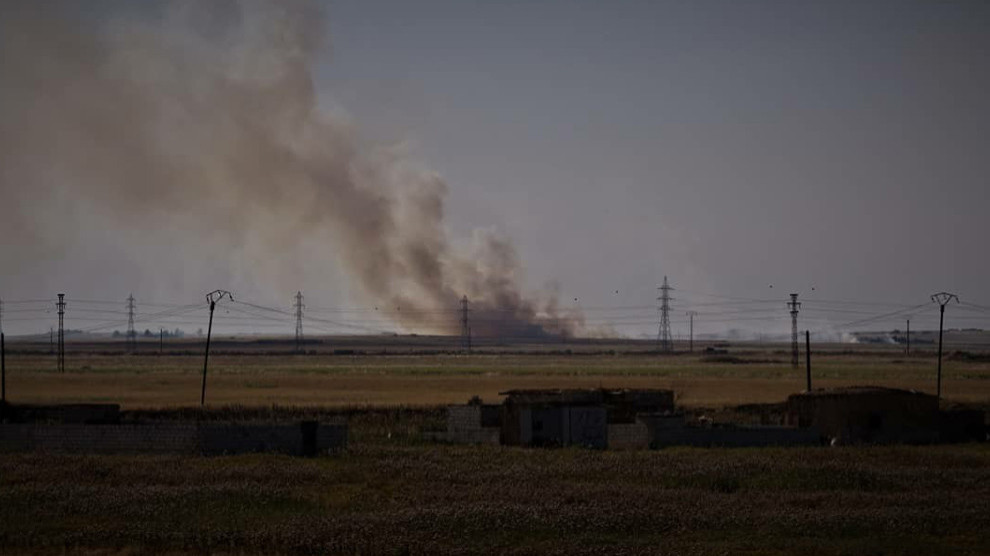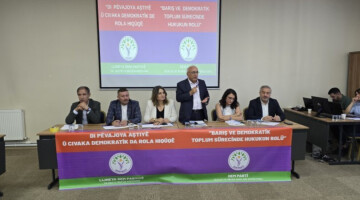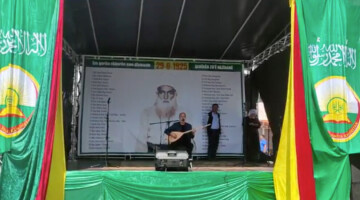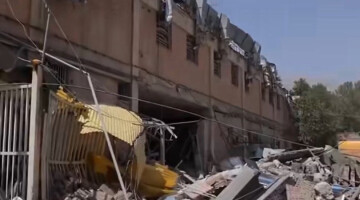For weeks Rojava has been suffocating again in field fires started by Turkish occupation forces and their jihadist allies. The targeted arson is part of the war against northern and eastern Syria and serves Turkey as a method of systematic expulsion policy and ethnic cleansing. Already during the occupation of Afrin two years ago, the foundation was laid for systematically destroying the economic foundations of the local people.
However, since last summer, when field fires in agricultural production areas caused a loss of almost triple-digit millions of dollars in harvests, this method of war has now reached a new dimension. Compared to last year, many fields were set on fire much earlier in 2020. At the same time, many regions in the self-governing areas are suffering from water shortages, as the waterworks in Elok (Allouk), east of Serêkaniyê (Ras al-Ain), occupied by Turkey and its proxies, has been shut down for the seventh time since the beginning of the year. In many places, people cannot prepare for the fires at all.
Fire in Till Temir, Source: ANHA
Last week there were a large number of fires, particularly in and around Ain Issa and Girê Spî (Tal Abyad). For the past three days, the occupation forces have been concentrating on the predominantly Christian-populated town of Til Temir (Tal Tamr). Around noon, cultivated areas in three villages about six kilometers west of the city were burned. These were fields in the villages of Rîhaniyê, Ezîziyê and Feyseliyê. A little later, the occupation troops also set fire to several fields in Qasimiyê. Due to unfavourable wind conditions, the flames also spread to cultivation areas in the village of Um El Kêf. At about the same time, the civilian cultivation areas in Girê Spî also went up in flames, affecting the inhabitants of the villages of Serzorê and Farisa. Attempts by residents and fighters involved in the resistance against the Turkish invasion were prevented by targeted fire from the occupying forces. The people have to watch as their livelihood turns to ashes.
Fire in Girê Spî, Source: ANHA
Al-Bab also affected
In the village of Şêx Nasir, east of the Turkish-occupied city of al-Bab, Islamist proxies set fire to agricultural land on Wednesday. To help the villagers extinguish the fire and prevent it from spreading to other areas, units of the self-organized military council of al-Bab moved out.
According to Baran Arîme of the Military Council, the fire was set by militiamen of the Turkish-backed militia " Euphrates Shield ". Wheat fields as well as walnut and olive plantations were affected.
Fire in Till Temir, images from a surveillance camera at the front - Source: ANHA
Artillery attacks in the vicinity of refugee camps
Last Sunday, Turkish artillery shells struck the immediate vicinity of the refugee camp near Ain Issa and the villages of Qizelî and Şorbenîşk near Girê Spî, burning down houses and fields. The wind quickly spread the fire to the adjacent fields in the villages of Seyda and Mexaloq. Due to continuous attacks and targeted bombardment by the occupation forces, attempts to extinguish the fire were also unsuccessful here.
Similar scenes took place west of Girê Spî at the beginning of last week, when a targeted bombardment of civilian settlement areas caused a conflagration. At first, several houses burned down, then the flames spread to the surrounding fields. The crops in the villages of Zenubiya and Zey Ereb were completely destroyed by the fire.














